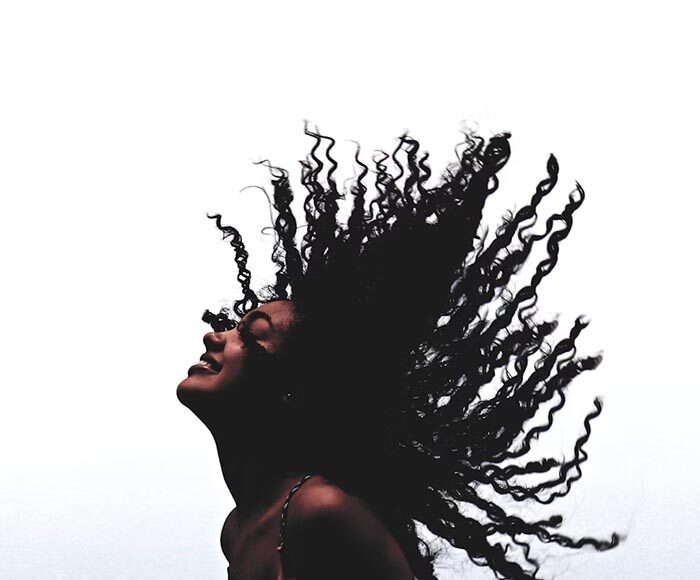Dry hair and scalp are common concerns that can affect anyone, leading to frizz, breakage, and discomfort. While genetics and environmental factors play a role, daily habits often have a significant impact on hair health. By understanding and adjusting these routines, it’s possible to restore moisture, strength, and shine.
Many people assume that dry hair is unavoidable, but small changes in how you care for your hair and scalp can produce noticeable improvements. From washing techniques to product choices, each decision contributes to hair health. Learning which habits help and which may harm can prevent dryness and protect hair over time.
Focusing on consistent care rather than occasional treatments is key. Daily practices create long-term results, keeping hair soft, hydrated, and resilient. This guide explores practical habits that make a difference for dry hair and scalp.

Identifying Underlying Causes
Sometimes, persistent dryness may be linked to underlying factors. Hormonal changes, medical conditions, or environmental exposures can influence hair moisture levels.
Understanding the root cause helps in choosing effective care strategies. If you explore causes of dry hair, you’ll find out both internal and external factors that contribute to dryness, including water quality, diet, and lifestyle. Recognizing these factors allows for targeted adjustments that improve results.
Consulting healthcare or hair care professionals can provide guidance. By combining daily habits with an understanding of underlying causes, individuals can create comprehensive routines that restore hydration and strength.
Choosing the Right Shampoo and Conditioner
The products you use have a direct impact on hair moisture. Shampoos with harsh sulfates can strip natural oils, leaving hair dry and brittle. Opting for gentle, sulfate-free formulas helps preserve natural moisture and prevents irritation.
Conditioners are equally important. Regular use of hydrating conditioners replenishes moisture lost during washing and protects hair from environmental damage. Applying conditioner primarily to the mid-lengths and ends ensures that the most vulnerable areas receive the most hydration.
Some people benefit from deep-conditioning treatments once or twice a week. These masks penetrate the hair shaft, restoring elasticity and softness. Combining daily care with occasional intensive treatments creates a strong foundation for healthy, hydrated hair.
Adjusting Your Washing Routine
How often you wash your hair can influence moisture levels. Frequent washing, particularly with hot water, can remove natural oils that protect the scalp and hair. Reducing wash frequency or using lukewarm water helps maintain these oils and prevents over-drying.
Paying attention to scalp care during washing is important. Gently massaging the scalp stimulates blood flow without causing irritation. Using fingertips instead of nails avoids micro-damage while promoting healthier hair growth.
Post-wash habits matter as well. Patting hair dry with a soft towel instead of rubbing reduces breakage. Allowing hair to air-dry when possible protects the strands and maintains hydration.
Protecting Hair from Heat and Styling Damage
Heat styling tools such as flat irons, curling wands, and blow dryers can exacerbate dryness. Limiting heat exposure and using protective products minimizes moisture loss. Heat protectant sprays form a barrier that reduces damage while styling.
Air-drying or using the lowest heat settings on styling tools can preserve hair integrity. Consistent heat damage accumulates, weakening the hair shaft and contributing to split ends and frizz.
Choosing hairstyles that don’t rely on daily heat exposure is another helpful strategy. Loose braids, buns, or natural styles reduce stress on the hair while still allowing for polished looks. These approaches maintain hydration and prevent unnecessary damage.
Maintaining a Healthy Scalp
A healthy scalp is crucial for preventing dryness and supporting hair growth. Moisturizing treatments, such as lightweight oils or serums, can soothe irritation and replenish lost moisture. Scalp exfoliation removes buildup that may block hair follicles, improving scalp health.
Brushing and combing habits influence the scalp. Using a wide-tooth comb or a soft-bristle brush avoids unnecessary tugging and breakage. Gentle detangling distributes natural oils from the scalp down the hair shaft, promoting shine and hydration.
Hydration from within is equally important. Drinking sufficient water and maintaining a nutrient-rich diet support scalp health. Omega-3 fatty acids, vitamins, and minerals contribute to moisture retention and stronger hair follicles.
Minimizing Environmental Stress
Environmental factors, such as sun exposure, wind, and dry climates, can worsen hair dryness. Wearing protective styles, hats, or scarves shields hair from direct exposure to harsh elements. UV-protective sprays provide an additional barrier for color-treated or sensitive hair.
Indoor conditions matter. Air conditioning and heating systems can strip moisture from the hair and scalp. Using humidifiers in dry indoor environments helps maintain adequate moisture levels. Adjusting daily routines to consider environmental stressors prevents dehydration.
Reducing exposure to chlorinated or salty water is another effective habit. Swimming pools and ocean water can remove natural oils, leaving hair dry and brittle. Applying protective oils or rinsing hair promptly after swimming minimizes these effects.
Nutrition and Lifestyle Habits
Your diet and lifestyle influence hair hydration. A balanced diet rich in proteins, healthy fats, and vitamins promotes stronger, more resilient hair. Nutrients such as biotin, vitamin E, and zinc support hair structure and moisture retention.
Stress management plays a role. High stress levels can lead to hormonal changes that affect scalp health and contribute to dryness. Incorporating relaxation practices such as meditation, exercise, or yoga can indirectly support hair wellness.
Sleep quality is another factor often overlooked. Adequate rest allows the body to repair and regenerate, including hair follicles. Prioritizing sufficient sleep enhances the effectiveness of other hair care routines.
Avoiding Harmful Chemical Treatments
Chemical treatments like bleaching, perming, and frequent coloring can severely dry out hair. Limiting the use of these treatments or spacing them out allows hair time to recover. When coloring is necessary, opting for gentle, ammonia-free formulas reduces damage.
Professional guidance is valuable when undergoing chemical treatments. Stylists can recommend appropriate protective treatments and post-care routines. Combining careful application with proper maintenance helps preserve moisture and maintain hair strength.
Using less aggressive hair products at home complements these practices. Avoiding alcohol-based styling products and harsh gels reduces cumulative drying effects. Gradual, consistent care is more effective than occasional intensive treatments.

Daily habits play a crucial role in maintaining healthy, hydrated hair and scalp. From selecting the right products and washing routines to protecting against heat and environmental stress, consistent care produces noticeable improvements.
Nutrition, lifestyle choices, and minimizing chemical exposure support moisture retention and hair resilience. Understanding the underlying causes of dryness allows for targeted solutions that enhance daily routines.
By implementing these strategies, individuals can prevent damage, strengthen hair, and improve scalp health. Small, consistent habits accumulate, making a big difference for dry hair and scalp while supporting long-term hair wellness.
##




